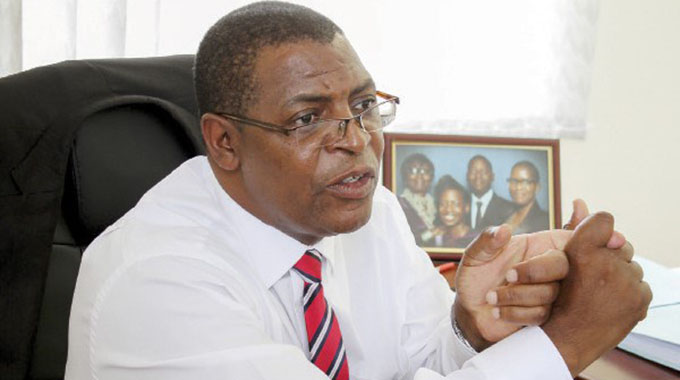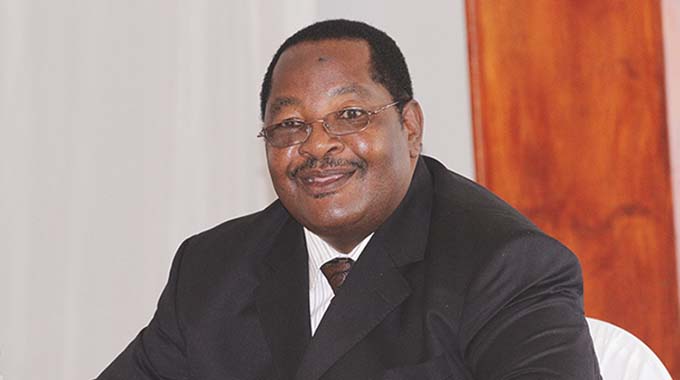Time AU gave PAP some legislative teeth

Ranga Mataire Senior Writer
In the heat of a campaign trail, people undergo some kind of mental freeze that insulates them from a world beyond their immediate spheres.
It’s like nothing else matters. Yet beyond the electoral denouement, there exists a life whose vagaries stubbornly stand in the way of one’s tawdry life.
Beyond the elections, there is some kind of catharsis as reality sets in as one reflects on the apophthegm: it is one’s personal input than an individual contender’s electoral pledge that ultimately shapes one’s destiny.
This truism is instructive in that it calls upon individual citizens to look at life in a much broader perspective, particularly on other issues, events or developments that have a direct impact on their lives.
Whoever is to emerge as the winner of the harmonised elections has to confront a myriad domestic challenges as well as regional and continental tasks that all impact on the lives of ordinary citizens.
One such critical event in the context of Zimbabwe is the impending 31st Ordinary Session of the Assembly of the African Union Heads of State and Government summit scheduled for Mauritania in few weeks.
Far from being a mere sideshow or a talks-show, the AU summit, aptly themed “Winning the Fight against Corruption: A Sustainable Path to Africa’s Transformation,” comes at a time when almost every Head of State in the region has cited corruption-busting as a priority task in achieving sustainable economic development.
It is hoped that the Heads of State that will gather in Nouakchott, Mauritania from 26 June to 2 July, will take time to reflect on the operations of the Pan-African Parliament (PAP), which has been in existence for the past fourteen years.
PAP was conceived in the treaty establishing the African Economic Community in Abuja, Nigeria 1991 (Abuja Treaty) as a platform for the voices of the peoples of Africa and their grassroots organisations on matters of continental integration.
With the transformation of the Organisation of African Unity (OAU) to the African Union (AU), PAP was incorporated into the Constitutive Act of the African Union as one of the organs with a mandate to represent the aspirations of the people in the decision making processes of the AU regarding political and economic integration.
PAP legislators represent all the peoples of Africa and pursue the objective of, among others, facilitating the effective implementation of the policies and objectives of the AU as well as promoting the principles of human rights and democracy in Africa.
To achieve its objectives, PAP is pursuing the African Women Protocol as part of its drive to protect women’s rights, enhance gender equality through affirmative action across Africa.
It has also played a pivotal role in mobilising parliamentarians in their role as agents and champions of change.
While the reasons for its conception were noble, it is without doubt that the continental parliament has not lived up to expectations owing to a number of challenges that include its lack of enforceable mechanisms.
It is also of concern to note that an institution set up to play an oversight advisory and consultative role has in recent times been mired in controversy regarding the alleged extravagant lifestyle of its President – Cameroonian Roger Nkodo Dang.
Regrettably, the AU has not done much to sell such a critical institution to ordinary citizens who are supposed to be the major stakeholders.
So obscure is this important legislative body that even those who reside close to its location at Gallagher Convention Centre in Midrand, South Africa are barely aware of its existence.
Yet such an important continental legislative body with advisory and consultative powers ought to be celebrated as a milestone in trying to bring the dream of an economically united Africa. But the lack of recognition or celebration of such an integral body of the AU is not without basis.
It stems from a perennial shortcoming often levelled against the mother body – the African Union. It is the problem of lack of decisive action in dealing with crisis situations.
The validity of the allegations stems from the fact that 55 years after the birth of the continental organisation, there seems to be no power to enforce and deepen continental political and economic integration.
The lack of shared enforceable legislative powers is one sticking issue that has stalled the effective operation of PAP.
PAP was defective from its inception in that it only had advisory and consultative roles.
Although there existed a provision to review PAP’s operations and effectiveness after five years, this has not happened. A conference to review PAP in 2009 never took place and it has remained more of a talk-show than a necessary instrument to effect real continental change.
PAP is more representative of all continental regions, with 250 members representing 50 African countries just like the African Union is representative of almost every country on the continent.
PAP is headed by a president, who is deputised by four vice presidents representing five-sub regions. The parliament is funded by the AU and external donors who include the EU, Word Bank, IMF and the UNDP.
Although inspired by the EU Parliament, the Pan-African Parliament differs in that its members aren’t directly elected and has no binding legislative powers. The lack of binding legislative powers has been cited by critics as its major weakness.
There is also no direct feedback to citizens about the work of PAP because its legislators are elected by their respective citizens and therefore owe no allegiance to PAP, which has no power to veto or suspend any errant member.
It also appears as though some African leaders are not very keen to see the continental parliament empowered for fear that it may have cross border powers that may encroach on national sovereignty.
Realising the need to capacitate PAP, just four years ago, the AU came up with a protocol whose sole aim was to “draft model laws to the assembly for its consideration and approval.”
In June 2014, in Malabo, Equatorial Guinea, African Union member states adopted an emended protocol, which among other things, would give PAP its long-intended legislative power.
For the Malabo Protocol to be effective, it needs a simple majority of the AU’s 54 member states – at least 28 states – to sign it, ratify it and deposit their instruments of ratification with the AU.
According to PAP president Dang, Mali is so far the only country which has ratified the protocol, with three other countries having signed and ratified and six more have only signed.
That means 44 countries have done nothing to give PAP legislative powers.
Maybe member states feel less inspired by the leadership of Dang, who is accused of living a luxurious life in South Africa.
There seems to be no proper accountability in the running of PAP, something that could have emboldened Dang to behave as if he was above scrutiny.
If Dang had been directly elected as is the case in the EU parliament, he would probably have had a keener sense of obligation to his constituency, with the understanding that any misdeeds would lead to him being punished at the polls.
Allegations of corruption and extravagant expenditures against the PAP president have the effect of chasing away donors.
Apart from foreign donors, PAP also gets financial support from the African Development Bank.
The fact that Dang has continued to hang on to the leadership despite accusations of corruption and profligacy raises questions about the sincerity of continental leadership in deepening economic integration and promoting transparency.
How can the AU talk about “Winning the Fight against Corruption: A Sustainable Path to Africa’s Transformation” when it fails to clean its own institutions?
Already, there are marked divisions between legislators of the southern region and western region regarding Dang’s leadership.
It is hoped that in the conversation about corruption at the AU meeting in Mauritania, someone will raise the need for an urgent meeting to re-evaluate the operations of PAP so that it moves from its current advisory role to effectiveness.
There is need for an urgent audit of PAP’s financials and it is important that the mother body does something about the accusations against Dang.
It needs not be overstated that accountability is a key ingredient in ensuring continental integration.
As aptly captured by PAP’s acting Deputy Clerk of the Legislative Business, Adv Galal Nassir; “The Pan-African Parliament as the AU organ representing the people is uniquely positioned to provide a platform to mobilise citizen participation in the affairs of the African Union and promote the rights of women.
“To better deliver on its mandate, it requires legislative powers which can be obtained through the process of ratification of the revised Protocol by 28 member states of the African Union.”
In short, there is need for political will on the part of all member states to make sure that PAP is capacitated in terms of having legislative powers.









Comments